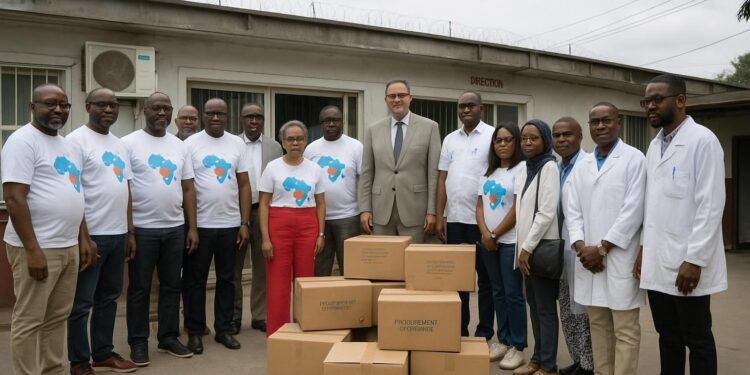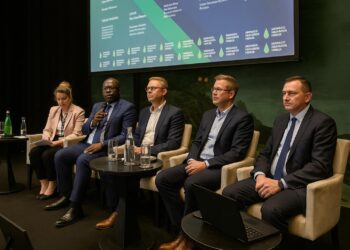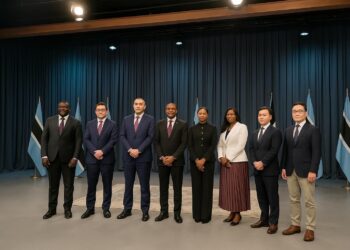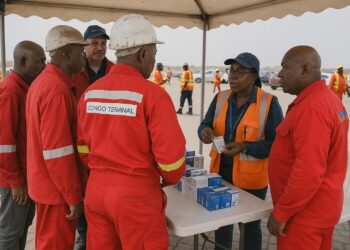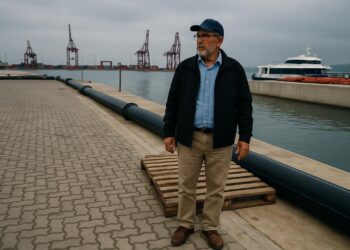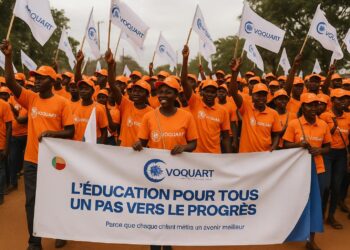Blood-bag donation bolsters national reserves
On 19 September 2025 Africa Global Logistics, through its subsidiaries AGL Congo, Congo Terminal and Terminaux du Bassin du Congo, donated 2 500 double blood-collection bags to the National Blood Transfusion Centre in Brazzaville, reinforcing public efforts to secure reliable supplies for hospitals across the Republic of Congo.
The medical-grade kits, valued by health officials at roughly CFA 25 million, will anchor upcoming blood drives in Brazzaville and Pointe-Noire, where seasonal shortfalls frequently constrain surgical, maternal and trauma care, according to senior clinicians involved in the country’s Safe Blood for All initiative.
A’Solidarity Day and the CSR playbook
AGL timed the gesture with its annual A’Solidarity Day, a continent-wide programme that rallies the group’s 23 000 employees around a common community action while using sporting challenges to nurture cohesion and well-being within a geographically dispersed workforce.
Last year the same framework delivered a perimeter wall and fresh paint to the 5 Février 1979 primary school in Pointe-Noire, benefiting 3 500 pupils and illustrating how AGL positions corporate social responsibility as a tangible extension of its port and logistics concessions.
Logistics footprint powers economic diversification
Operating twenty-two sites along the Congo River and Atlantic coast, the French-speaking group handles containers, bulk minerals and forestry products that sustain roughly a third of national customs revenues, according to port authority statistics published earlier in 2025.
By keeping corridors fluid, the operator underpins diversification ambitions promoted in the 2022–2026 National Development Plan, which targets greater agro-industrial processing and sub-regional trade while maintaining prudent debt ratios endorsed by the IMF’s latest Article IV consultation.
Blood security as macroeconomic factor
Health experts note that economic resilience also depends on blood safety, estimating national needs at 60 000 units per year, yet collections hover near 40 % of that threshold during low-season months; equipment donations therefore carry macro-economic relevance beyond purely humanitarian optics.
CNTS director Dr Armand Ngaïla welcomed the partnership, stressing that double bags allow the separation of red cells and plasma, thereby optimising inventory rotation and cutting purchasing costs for provincial hospitals that already face fuel-price linked transport bills.
For AGL Country Manager Hugues Tonkpabia the move also demonstrates the firm’s ability to mobilise cold-chain know-how beyond commercial cargo. “Shipping bags from our Antwerp hub to Brazzaville under controlled temperature validates the versatility of our integrated model,” he indicated during the handover ceremony.
ESG value in port concessions
Market analysts tracking the Central African ports cluster argue that such outreach improves AGL’s social licence to operate at a time when ESG criteria increasingly influence concession renewals and syndicated loan pricing from multilaterals and commercial banks.
In the Congo context the strategy aligns with the government’s commitment to universal health coverage and its appeal to the private sector to share responsibility for public-good infrastructure, a stance reaffirmed by Health Minister Gilbert Mokoki in several recent forum addresses.
Volunteer drives test operational readiness
Beyond Brazzaville, simultaneous drives are planned on the Pointe-Noire port platform, where over 1 500 AGL volunteers intend to give blood, a logistical undertaking that calls for staggered scheduling, on-site testing units and coordinated trucking to the coastal referral hospital.
Human resources managers view the exercise as a live stress-test of incident response and data collection practices that could translate into smoother operations during peak export seasons or unforeseen supply chain shocks such as pandemics or regional flooding.
Investment and regulatory implications
For investors, the initiative reinforces signals that the Congolese logistics corridor is integrating ESG momentum without undermining cost competitiveness, a narrative that may support planned capital injections in container handling equipment and IT systems over the 2026–2028 horizon.
Legal observers also highlight that proactive community engagement can anticipate forthcoming Central African Economic and Monetary Community guidelines on corporate duty of care, currently in draft, thereby potentially easing compliance costs once the regional directive enters into force.
While blood safety remains primarily a public mandate, the 2 500-bag contribution exemplifies how concessionaires can leverage scale, cold-chain assets and human capital to complement fiscal resources and expand social impact, supporting both health outcomes and the macro-stability objectives championed by Brazzaville’s authorities.
Regional health context and digital tracking
Regional epidemiologists recall that Central Africa records higher per-capita demand for transfusions because of malaria-related anaemia; consequently, modern consumables such as double bags reduce waste by permitting component separation matched to paediatric or adult needs, an efficiency gain highlighted in WHO assessments.
The Congolese Ministry of Health is piloting a digital haemovigilance registry to trace donations from vein to vein; AGL’s logistics information system could theoretically feed into that platform, offering real-time geolocation of supplies, a feature donors and regulators alike view favorably.
Financing links and civil-society oversight
Financial institutions examining the group’s sustainability-linked loan prospectus note that measurable health impacts, such as incremental safe units collected, could become performance indicators triggering margin adjustments, thereby monetising community programmes once considered non-core philanthropy.
As A’Solidarity Day closes, local civil-society organisations underscore the importance of consistent follow-up, suggesting joint dashboards and periodic audits to ensure that the initial 2 500 bags translate into sustainable supply chains and a culture of voluntary donation across urban and rural areas.
Blueprint for cooperation and growth
Stakeholders agree the initiative offers a blueprint combining logistics efficiency, health priorities and investor-grade ESG metrics, positioning Congo as a benchmark for cooperation.

































